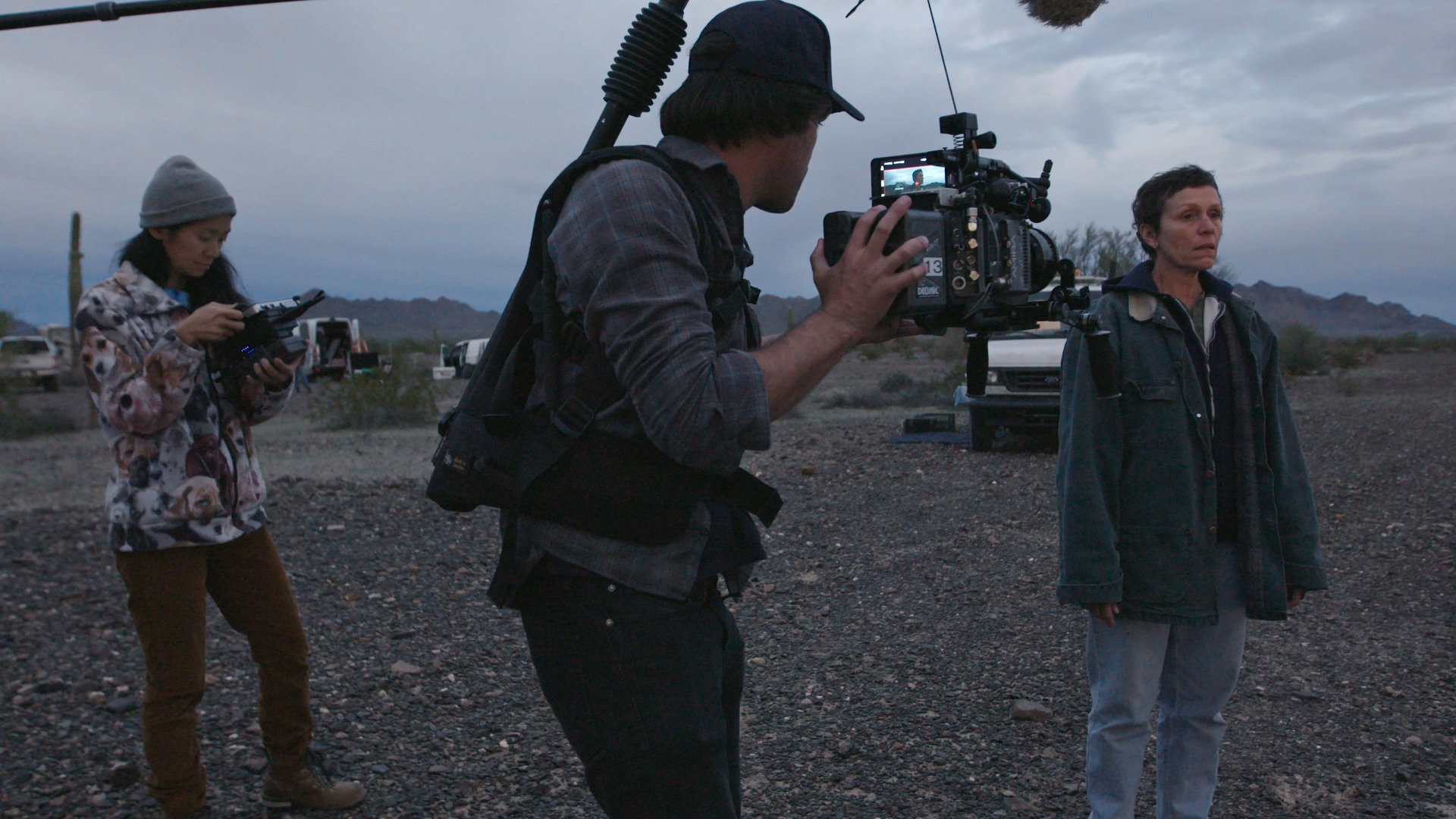In a 2018 interview for Criterion’s “Under the Influence” series, director Chloé Zhao broke down her appreciation of Terrence Malick’s 2005 “The New World.” The “Nomadland” director discussed how Malick’s spirituality, and how the viewer got sense of a bigger world beyond the characters and frame, came through in how he approached nature.
“The filmmaker’s curiosity of trying to talk about humanity through nature because it’s not just us and nature, we’re the same thing,” Zhao told Criterion about “The New World.” “And he’s really asking us to think that way in his filmmaking, and that dictates how he works with his actors and how his cinematography works.”
While she was on the Filmmaker Toolkit podcast to discuss her third feature film, the Oscar frontrunner “Nomadland,” IndieWire asked Zhao if her description of Malick doesn’t also apply to her own approach to story and filmmaking. In response, Zhao quoted her long-time cinematographer, Joshua James Richards (also on the podcast), who said, “In Terry’s film, God exists, in Chloe’s film, paganism exists.”
“I think you’re 100 percent right, that is a through-line in all my films,” Zhao went on to explain. “Because obviously I wasn’t raised religious, so for me the concept of God, in a traditional sense in an organized religion, doesn’t speak to me, but there’s something out there that’s bigger than us that is in nature, that you can find and feel in nature, speaks to me very strongly, maybe because I [didn’t] have religion growing up. The older I get, the more I feel that I am lacking something and the search for that, that I found in nature [and] that I try to explore in [‘Nomadland’].”
Zhao was born in Beijing and received her formal filmmaking training at NYU, where she met Richards. It was the years following film school, which she spent out West and where she made her first two films, “Songs My Brothers Taught Me” and “The Rider,” where this exploration of the spiritual and nature, through filmmaking, first happened.

Chloé Zhao, Joshua James Richards and Frances McDormand on the set of “Nomadland”
Searchlight Pictures
“Having lived in big cities my whole life, there was a good five years where I was on the road and that’s when my relationship with nature developed, and sometimes it’s through other people’s perspective, like Brady [Jandreau, the subject and star] in ‘The Rider,’ what does nature and animals mean to him,” said Zhao. “I think I channelled some of that through ‘Nomadland,’ and Frances [McDormand] always said, ‘The older I got, the closer I want to be to dirt that I’m going to go back in.’ So I’m listening to that, and thinking about what that means, and someone said to me recently, when things get really bad for human beings, there is a natural desire to go back into nature, it’s in our DNA, everything will be okay over there, there’s a rhythm of things that has been there forever, it’s not our home or technology, because these things are too new.”
How the collaborators’ visual language and filmmaking process has developed in the relationship between camera, landscape, and character — often played by a first-time performer in Zhao’s films — has become more sophisticated in each of Zhao and Richards’ three films. While on the podcast, Richards talked about how he has grown in his ability to catch the right light and still have the freedom to deliver on Zhao’s unique filmmaking approach.
IndieWire Filmmaker Toolkit · ‘Nomadland’ Dir Chloé Zhao & DP Joshua James Richards
Subscribe via Apple Podcasts to the Filmmaker Toolkit Podcast
“On set, I’m the guy just watching the light change and you’re observing that all day long, and it’s been over three movies, and you look at it on the day and pacing around anxiously,” said Richards. “If you go too early, you’re a coward, ‘If you waited 20 minutes!’ I just never want to be in the position where we cut, and Chloe feels like she got all the energy from the different people, and then the light’s perfect. You become a little hooked on it, it’s like catching a barrel on a wave, that’s the spot man. And we nailed the whole scene in that [claps], that’s it.”
The Filmmaker Toolkit podcast is available on Apple Podcasts, Spotify, Overcast, Stitcher, and SoundCloud. The music used in this podcast is from the “Marina Abramovic: The Artist Is Present” score, courtesy of composer Nathan Halpern.



